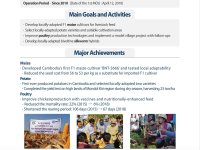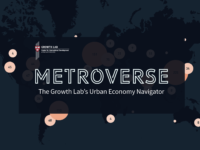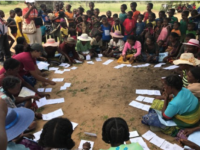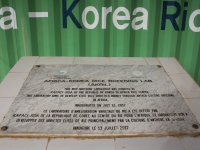During the Russian invasion of Ukraine, relief organizations and government agencies lacked data about events on the ground and struggled to mount an effective response. New methods of event detection were urgently needed. A research team comprised of country experts and computational social scientists created a Twitter-based event detection system that provides geo-located event data on humanitarian needs, displaced persons, human rights abuses and civilian resistance in near real-time.
Innovation Tag: International Development
Metroverse is an urban economy navigator built at the Growth Lab at Harvard University. It is based on over a decade of research on how economies grow and diversify and offers brand new insights on a city's growth prospects by placing its existing technological capabilities and knowhow at the heart of how diversification unfolds. Metroverse was built using a user-centered design process to help city leaders, policymakers and researchers grapple with 21st-century urbanization challenges.
Cash transfers, recognized as one of the most effective tools in social protection, are expanding rapidly into the world’s poorest economies. As these programs support more of the world’s most vulnerable populations, they face growing demands to increase their effectiveness. Light touch interventions from behavioral science help make programs more adaptive to the psychological phenomena that influence beneficiaries’ decisions and actions and improve outcomes at little additional cost.
The Global Councils on SDGs is a unique interdisciplinary network of decision makers from governments, international organizations, academia, and the private sector, who came together to share innovative practices and discuss the creative implementation of the SDGs at the national and global level. Based at the World Government Summit, the Councils aimed to work on creating new partnerships between countries, organizations, and sustainable development advocates for the implementation of SDGs.
Viet Nam has suffered a drastic decrease in mangrove forests in recent decades driven by the growth of aquaculture. The governments of the Republic of Korea and Viet Nam have decided to resolve this issue through cross-sector collaboration between the forestry and fisheries sectors of both governments. Through this cooperation, the two governments will help local people restore and sustainably manage mangrove forests while also improving their livelihoods through eco-friendly aquaculture.
Case Study
KOPIA – Customized cross-border farming technologies to address poverty and rural challenges

KOPIA (Korea Program for International Cooperation in Agricultural Technology) is an innovative development cooperation platform that facilitates agricultural partnerships among partners and donors, where agricultural technologies can be efficiently scaled up and effectively commercialized. KOPIA consists of three pillars: to develop locally-customized farming technologies; to carry out pilot projects to demonstrate practical effectiveness; and to involve other donors for scaling up.
The GCF is the MMC’s response to the unmet needs of cities as they work to support migrants, refugees, & IDPs during COVID-19. By offering direct financial and technical support to cities in low & middle income countries, the GCF proves fiscal feasibility in places that are often disregarded by donors with low-risk tolerance. The vision is to create a model that can be scaled & replicated elsewhere to ensure that global responses to pressing challenges reflect & address realities on the…
KAFACI and AfricaRice jointly developed the Africa Rice Development Partnership project to increase rice productivity in Africa. Using modern breeding technology that shortens the breeding period from 10-15 years to 3-5 years, and by crossing Korean Japonica rice with African varieties, five high-yielding varieties were developed and registered in three countries. The newly released varieties directly benefited farmers, consumers, retailers and policy-makers due to their high yield and quality.
The West Africa Health Informatics Team (WAHIT), based at the West African Health Organization (WAHO), is a team of software developers and health information system experts that provide on-demand technical assistance to countries while building local capacity. Originally founded in the wake of the Ebola outbreak as a proof of concept to test innovative models for building local health informatics capacity, WAHIT evolved into a foundational component of WAHO’s leadership in health in the…
Case Study
ASEAN Food Security Information System (AFSIS): Innovation for Agricultural Data Management &…
The Government of the Republic of Korea has implemented an ICT-based agricultural data management system through digitalization and a human capacity building program, which allows innovative data collection, analysis, and sharing in 6 ASEAN member countries. Through this, the governments have improved the paperless work process on agricultural statistics, accumulating the data and human resources for enhancing food security in the ASEAN region.




